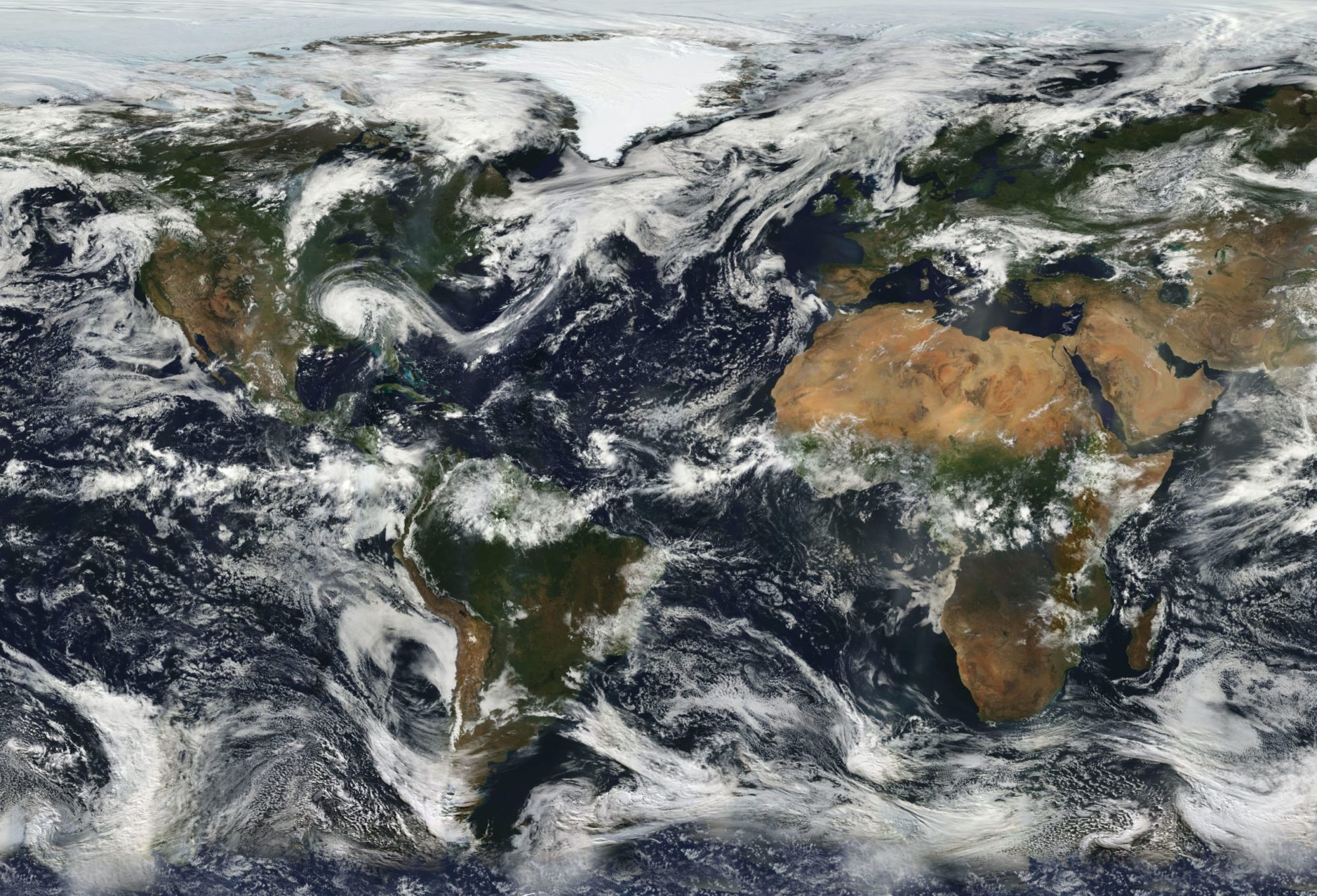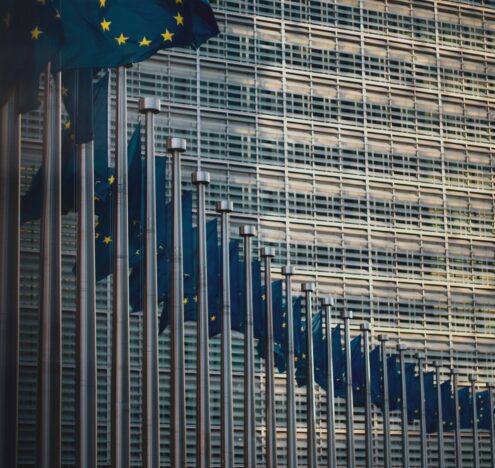“The free world is holding him accountable,” President Joe Biden confidently declared in his latest State of the Union address, expressing a belief that a global coalition of democracies is resisting Russian President Vladimir Putin’s invasion of Ukraine. The US has carefully managed escalation in Ukraine and provided $2 billion in military aid to repel the Russian army. In conjunction with over 30 nations, the United States has levied an expansive sanctions campaign that targets large sectors of the Russian economy. The US and its allies have been clear — Russia’s bloody invasion will be punished through every measure short of military intervention.
Unfortunately, this response has not been global, nor has it been one befitting a “free world.” The sanctions campaign against Russia is impressive, but is mainly limited to the United States and Western Europe. The inclusion of Japan and Australia broadened the geographic scope of the Western coalition, but much of Africa, Asia, and South America seem to prefer neutrality. What’s more, while the UN vote to condemn Russia’s invasion may have garnered the support of 141 states, two of the world’s largest democracies, Brazil and India, abstained.
Most countries appear comfortable straddling the line on the invasion of Ukraine, judging that there are few benefits to weighing in on a “European war.” Russia has capitalized on this general ambivalence and attempted to cultivate ties with more friendly states outside of the West. Foreign Minister Sergey Lavrov made a highly publicized visit to India, a country that the US has tried to deepen ties with despite its major defense industry ties with Russia. Pro-Russian sentiments are shared in every language across social media, a sign that Russian propaganda is not focused on the West and that many states are receptive to anti-Western arguments.
Russia’s greatest success appears to be its close partnership with Beijing. Chinese social media and state-sponsored media regularly parrot pro-Russian talking points. Beijing and Moscow talk openly about creating a multipolar world order. Is that where the world is headed? And if so, what does that mean for the “free world”?
THE FALSE PROMISE OF THE “FREE WORLD”
The term “free world” is a propaganda term coined in the 1930s, initially as a slogan against the rise of fascism. It described the Western Bloc during the Cold War when the world was politically divided between the Western alliance dominated by the US and NATO and the Soviet Union and its allies. While mythologically moralistic from the start, “free world” actors often engaged in covert action against democratically elected governments and formed alliances with unsavory dictatorships.
After the collapse of the Soviet Union, the “Manichean” struggle ended, and the “free world” lost its purchase with no existential enemy to vanquish. The attacks on 9/11 provided a new threat, but global terrorism did not have an obvious adversary for a Western alliance to defeat. Now it has become a “mythic reference” in a shifting world order in which the US stands against several autocratic rivals: Iran, North Korea, Russia, and China. It has once again become useful to subsume global fault lines under two words.
Does a term rife with inconsistencies deserve a revival? Many observers have warned against conflating the current context with the Cold War and dividing the world into two camps. Is the “free world” cohesive enough to deserve its name? Some current examples indicate otherwise. France — the birthplace of liberté, égalité, fraternité — re-elected Emmanuel Macron, but his opponent, Marine Le Pen, won nearly 42% of the vote while openly pursuing rapprochement with Moscow.
Hungary’s Prime Minister, Victor Orbán, who is considered a “soft autocrat” by some scholars, recently won an election that the Organization for Security and Co-operation in Europe’s monitors deemed unfair. His Fidesz party can amend the Hungarian constitution without constraints. Despite this, Hungary remains one of the 30 odd nations that Biden referred to as the “free world” in his State of the Union address. Recently, scholars maligned Poland as a backsliding democracy. Now, the country is the eastern bulwark of the coalition of nations resisting Russia’s invasion and is hosting US troops and resupplying Ukrainian forces. This compromise demonstrates the challenge of overly broad rhetoric — Poland is not a perfect democracy, but it is critical to check any further Russian advance into Europe.
Russia’s invasion of Ukraine highlights the futility of attempting to cast the conflict as a showdown between the “free world” and autocracies. This rhetorical play obscures the fact that the world has not mobilized against Russia and that the current coalition is not exactly a perfect democratic alliance.
WHAT RULES-BASED ORDER?
The resuscitation of the language of the “free world” is based on an eminently reasonable goal — the end to Russia’s invasion and the respect of Ukraine’s territorial sovereignty. In essence, this “free world” is an extension of the vaunted “rules-based order” — another myth acting in our foreign policy.
The Bush administration regularly referenced the “rules-based order” during the invasion of Iraq in 2003; the Biden administration revived it during Russia’s aggression. The dichotomy between these two cases highlights the “fog” of a “rules-based order.” In one case, “upholding the rules” meant that the US should invade Iraq despite the protests of the international community. Today, it defines a much more justifiable US policy: upholding the rules by defending a sovereign nation against invasion. The problem with the phrase is that the US has an inconsistent, hypocritical, and self-serving relationship with “rules.”
The fogginess of the rhetorical “rules-based order” is part of its mystique. It’s “us” shrouded in the allure of righteousness, with an implicit condemnation of anyone opposed. If we were interested in something more tangible, there is the more consistent and stringent option of respecting international law. But a full embrace of international law would require the US to be accountable, even when it is against American interests, which is not how the US — or other major powers — have ever played.
The central organ of international law, the UN Security Council, was structured to ensure that the victors of World War II would permanently enshrine themselves as arbiters of rules that they could cast aside when necessary. The US has vetoed over 80 UN Security Council resolutions throughout its history. Moscow, often along with Beijing, blocked countless UN Security Council resolutions that sought to condemn Bashar al-Assad’s actions against Syrian opposition groups and civilians. In 2014, Russia vetoed a resolution that would have affirmed Ukrainian sovereignty.
This leaves the world with a body where decisions are primarily made by a select few — the US, two former European imperial powers, and two “revisionist powers.” During the Cold War, the Security Council was unable to function due to the US and Soviet Union’s standoff. The nations with veto powers cannot establish consensus on any conflict they are a party to, rendering the council unable to fulfill its primary obligation: “the maintenance of international peace and security.”
The US has also refused to sign the Rome Statute or join the International Criminal Court. Meanwhile, while touting a mythical “rules-based order” and continuing to duck adherence to inconvenient portions of international law, the Biden administration has continued relations with problematic allies and sought the assistance of Saudi Arabia and the United Arab Emirates to provide an alternative to Russian energy. As it always has, it appears that the new “free world” still has a use for autocrats who order the killing of journalists and spurn the calls of an American president.
In the face of these entrenched roadblocks, many other nations structure their foreign policy strategically, making alliances and deals as they see fit — and rarely along a simple split. China and Russia have been proactive in building on areas of cooperation with nations across the African continent, while the US still views African partners “as countries needing only its assistance and aid.” As the US exited the Trans-Pacific Partnership, Beijing expanded its Belt and Road Initiative throughout the world. The US has not been entirely inactive in the Global South, but it primarily engages only to advance US interests, which makes it challenging to construct a global consensus after a crisis begins.
OUR MULTIPOLAR WORLD
Russian soldiers have repeatedly targeted civilian areas, waging an indiscriminate war against the Ukrainian people. A functioning global order should not have difficulty in producing universal condemnation for the massacre of civilians.
But the US and the Western coalition have not set up the new “free world” for success by pretending that a liberal, “rules-based order” exists currently or that it was ever applied consistently. A world order could be constructed to condemn Russia’s invasion and initiate a truly global sanctions campaign. But it would require the West to become an equal participant in a world not framed in terms of “us vs. them.”
Many nations are already looking for a world order that is neither Western-dominated nor approves of the wanton violence of Moscow. The African Union proposal in 2005 to expand the UN Security Council could offer an example of how the current system could accommodate more countries with regional influence.
The US should be part of an effort to build that world order founded on shared norms and mutual understanding, but whether or not new powers would want the US to have a prominent seat at the table is unclear. The US, therefore, will need to make concessions, practice restraint, and be humble — none of which comes naturally to any US administration. For now, the US and the West should focus on building a consensus on how to deal with Russia and focus on ending the war in Ukraine. But the current leaders of the “rules-based order” should realize that they may find themselves in a different position in a post-Ukraine-war world.
Samuel Gardner-Bird is a graduating senior at Tufts University studying international relations. He is also a former Young Global Professional with the New American Engagement Initiative at the Atlantic Council’s Scowcroft Center for Strategy and Security.





















